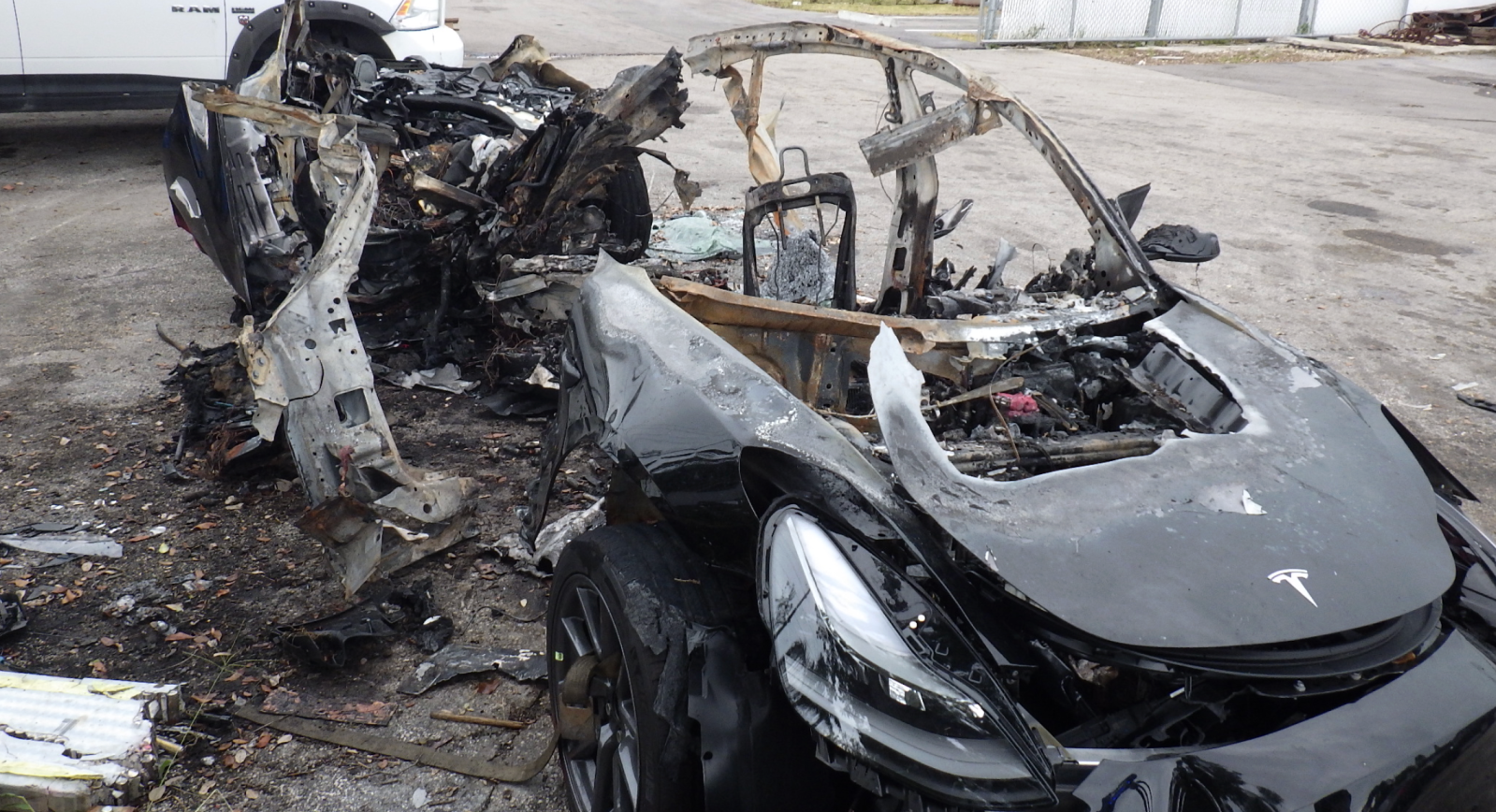
Tesla is acting dumb in a court case related to a fatal crash, and a judge is having none of it. The automaker is being sanctioned for ‘willful’ and ‘deliberate’ discovery violations.
The civil wrongful death lawsuit was filed by the families of Nicholas Garcia and his 19-year-old passenger, Jazmin Alcala, who died when Garcia’s 2021 Tesla Model 3 crashed after hitting a hump in the road while speeding through an intersection on September 13th, 2021.
The lawsuit alleged that the crash was caused or aggravated by a Tesla defect and/or improper repair, as Garcia had brought the vehicle to Tesla for service due to steering and suspension issues just days prior to the fatal accident.
Tesla had a safety recall regarding suspension issues with 2021 Model Y and Model 3 vehicles.
The case has been in litigation for 3 years, but it is stalling due to issues arising during discovery. Plaintiffs have complained that Tesla is lying and purposely misleading to avoid sharing data and documents that the court compelled Tesla to supply.
Now, a Florida judge has officially sanctioned Tesla, finding the automaker “acted willfully or with contumacious and deliberate disregard” for two separate court orders in the wrongful death lawsuit.
The blistering 9-page order, filed by Judge Michael A. Robinson on October 24, 2025, grants the plaintiffs’ first motion for sanctions and details a stunning pattern of misrepresentation and obstruction by Tesla’s legal team.
The judge granted the plaintiffs’ motion and ordered Tesla to pay all of the plaintiffs’ “reasonable attorney fees and costs” related to the misconduct, including fees for experts to review the documents Tesla dumped on them at the last minute.
Here are the judge’s most damning findings:
The judge found Tesla directly violated a November 6, 2023, court order compelling it to produce documents related to “real-world driving situations,” including driving over “speed bumps” and “uneven surfaces”.
- Tesla’s “False Claim”: At that 2023 hearing, Tesla’s counsel represented to the court that it had “already produced all documents responsive”. Tesla then produced “no additional testing documents… over the course of the next year”. The judge found this was “falsely or inexplicably” untrue.
- The “Sine Wave Test”: The judge found Tesla’s conduct “particularly troublesome” because it withheld documents for a “Sine Wave Test,” which he noted was “substantially similar to the crest in the roadway that was involved in the subject incident”.
- The “Not Credible” TIR Story: The court found that Tesla’s testing protocols required the creation of “Test Incident Reports” (“TIRs”), photos, and videos. Yet, on June 12, 2025, Tesla’s counsel responded in writing that Tesla “did not locate any TIRs”.
The judge was ruthless in his words regarding the TIR situation:
“The Court finds Tesla’s claim that it did not locate any TIRs, is not credible and appears to have been a willful and/or intentional misrepresentation.”
It’s not the first time Tesla has been accused of misrepresentation when releasing documents related to crash data. Earlier this year, plaintiffs in another wrongful death lawsuit related to a crash on Autopilot made similar complaints – the Benavides case. They ended up winning the lawsuit in trial with a $243 million verdict against Tesla.
Back to this case, the court found that “Tesla was in fact in possession of thousands of pages of TIRs”, and its own witness, Adam White, later testified they “can be easily located… by simply clicking on the hyperlinks.”
Eventually, Tesla did provide documents, but the judge ruled that the automaker’s legal team had produced about 123,000 pages of “virtually useless” documents just four days before the sanctions hearing in July.
The judge wrote in the sanction judgment:
“The Court further finds that Tesla has intentionally stripped all metadata and file names from the 123,000 plus pages… making them virtually useless to the Plaintiffs… The Court finds these acts were intended to make the review and use of these materials more difficult, time consuming and expensive for the Plaintiffs.”
The judge also had issues with Tesla’s witnesses. The automaker appears to have only made available witnesses who weren’t equipped to answer questions.
For example, Tesla produced Mr. Daniel Wood, who himself admitted that the engineer “personally responsible for the stability control” would be better suited to answer the question.
The judge found: “No such engineer was ever designated… and this Court finds this is a direct violation of its September 20, 2023 order.”
For now, Judge Robinson is only ordering Tesla to pay fees for its violations of the court orders, but it issued a strong warning to the company:
“Finally, continued violations of Court orders… may cause the Court to impose critical and severe sanctions against the offending party, including… striking pleadings or defenses.
The next hearing in the case is set for November 13th.
Electrek’s Take
There’s now a clear pattern of Tesla using questionable tactics to withhold critical information in court cases.
In this case, it’s now clear it won’t work, as the judge is having none of it. This might push Tesla to settle, as it clearly doesn’t want to release details of its test incident reports, which include what detailed findings in specific incident cases.
The Benavides case changed everything.
People are starting to catch up to Tesla’s dirty tricks, and they know exactly the data that the automaker collects. It’s only fair that both sides have access to that data in those legal battles.
This new case in Florida referenced the Benavides case regarding Tesla playing dumb in the discovery process. It’s going to be harder and harder for Tesla to do that.
It does look like Tesla’s position is becoming weaker with each legal case, and as we previously reported, the floodgates are open now, and the lawsuits are piling up.
We know of at least three more lawsuits against Tesla set for trial by the end of the year, if they don’t settle before then.
FTC: We use income earning auto affiliate links. More.

